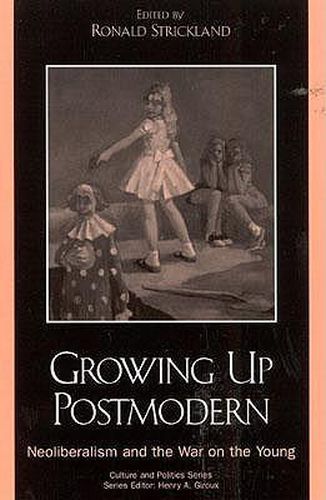Readings Newsletter
Become a Readings Member to make your shopping experience even easier.
Sign in or sign up for free!
You’re not far away from qualifying for FREE standard shipping within Australia
You’ve qualified for FREE standard shipping within Australia
The cart is loading…






This collection takes its inspiration from Paul Goodman’s Growing Up Absurd , a critique of American culture at the end of the 1950s. Goodman called for a revival of social investment in urban planning, public welfare, workplace democracy, free speech, racial harmony, sexual freedom, popular culture and education to provide a society that could inspire young people, an adult society worth joining. In postmodernity, Goodman’s enlightenment-era vision of social progress has been judged obsolete. For many postmodern critics, subjectivity is formed and expressed not through social investment but through consumption; the freedom to consume has replaced political empowerment. But the power to consume is distributed very evenly, and even for the affluent it never fulfils the desire produced by the advertising industry. The contributors to this volume focus on adverse social conditions that confront young people in postmodernity, such as the relentless pressure to consume, social dis-investment in education, harsh responses to youth crime, and the continuing climate of intolerance that falls heavily on the young. In essays on education, youth crime, counselling, protest movements, fiction, identity-formation and popular culture, the contributors look for moments of resistance to the subsumption of youth culture under the logic of global capitalism.
$9.00 standard shipping within Australia
FREE standard shipping within Australia for orders over $100.00
Express & International shipping calculated at checkout
This collection takes its inspiration from Paul Goodman’s Growing Up Absurd , a critique of American culture at the end of the 1950s. Goodman called for a revival of social investment in urban planning, public welfare, workplace democracy, free speech, racial harmony, sexual freedom, popular culture and education to provide a society that could inspire young people, an adult society worth joining. In postmodernity, Goodman’s enlightenment-era vision of social progress has been judged obsolete. For many postmodern critics, subjectivity is formed and expressed not through social investment but through consumption; the freedom to consume has replaced political empowerment. But the power to consume is distributed very evenly, and even for the affluent it never fulfils the desire produced by the advertising industry. The contributors to this volume focus on adverse social conditions that confront young people in postmodernity, such as the relentless pressure to consume, social dis-investment in education, harsh responses to youth crime, and the continuing climate of intolerance that falls heavily on the young. In essays on education, youth crime, counselling, protest movements, fiction, identity-formation and popular culture, the contributors look for moments of resistance to the subsumption of youth culture under the logic of global capitalism.